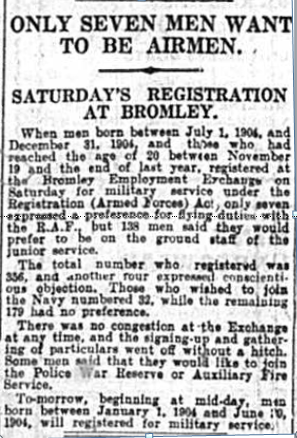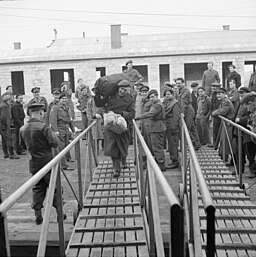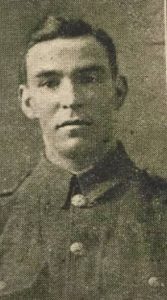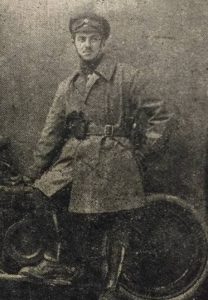On the day that Britain declared war on Germany, 3rd September 1939, Parliament immediately imposed the National Service (Armed Forces) Act which enforced full conscription on all males between 18 and 41 who were UK residents. Exempt from this were the medically unfit, and those who were in key industries and jobs such as baking, farming, medicine, and engineering.
Conscription helped greatly to increase the number of men in active service during the first year of the war.
Conscription of women
 To help widen the scope of conscription still further, the Parliament passed a second National Service Act in December 1941. This time making all unmarried women and all childless widows aged between 20 and 30 liable for called-up.
To help widen the scope of conscription still further, the Parliament passed a second National Service Act in December 1941. This time making all unmarried women and all childless widows aged between 20 and 30 liable for called-up.
Men were now also required to do some form of National Service up to the age of 60, including military service for those under 51.
The main reason was that there were not enough men volunteering for police and civilian defence work, or women for the auxiliary units of the armed forces.
The following article and recruitment advert appeared it the local Bromley newspaper in mid-January 1941, showing that there was not much interested in men to sign up for the RAF. Perhaps the problem lay in the fact that the average life expectancy of a spitfire pilot during the Battle of Britain was only an astonishing four weeks.
During the battle, 544 British RAF pilots died.
Only Seven Men Want to be Airmen
Saturday’s Registration at Bromley
When men born between July 1, 1904 and December 31, 1904 and those who had reached the age of 20 between November 19 and the end of last year, registered at the Bromley Employment Exchange on Saturday for military service under the Registration (Armed Forces) Act, only seven expressed a preference for flying duties with the R.AF., but 138 men said they would prefer to be on the ground staff of the junior service.
The total number who registered was 356, and another four expressed conscientious objection. Those who wished to join the Navy numbered 32, while the remaining 179 had no preference.
There was no congestion at the Exchange at any time and the signing-up and gathering of particulars went off without a hitch. some men said that they would like to join the Police War Reserve Auxiliary Fire Service.
Tomorrow, beginning at mid-day, men born between January 1, 1904 and June 20, 1904, will registered for military service.
Sources:
Bromley & District Times newspaper, 17th January 1941, pages 3 & 5







